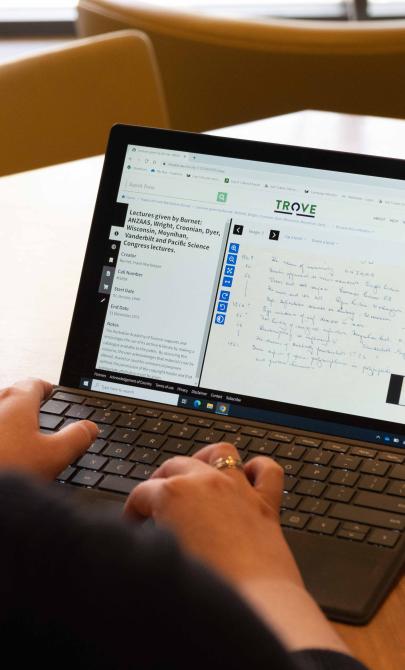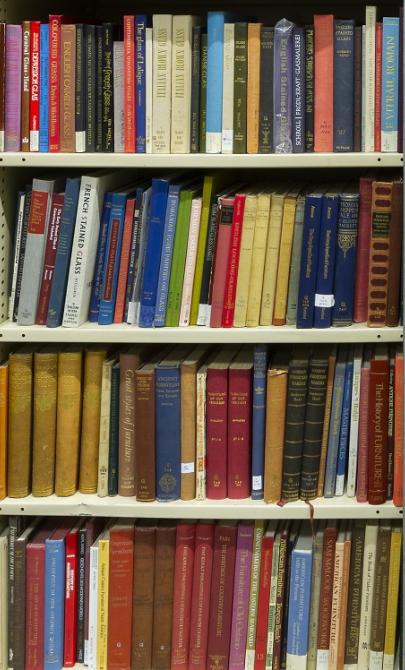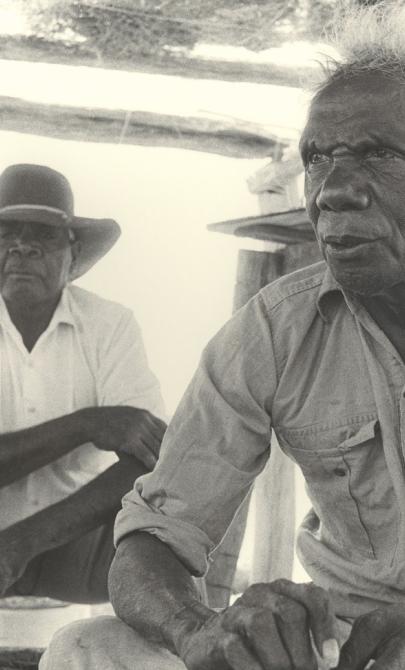First Nations births, deaths and marriages records
About births, deaths and marriages records
For civil registrations, Australian states and territories provide online indexes to 'historic' births, deaths and marriages registered in their respective jurisdictions. The word ‘historic’ here refers to records available to the general public.
The content of these records can vary between each state and territory and can also depend on the knowledge of the person originally providing the information for certificates.
To find out how to access these indexes, use our Australian birth, death and marriage records research guide along with the information provided below.
Church baptism, marriage and burial records
We hold various parish records which can be useful in the absence of official birth, death or marriage registrations.
Parish records may contain more information than what is available on civil registration certificates.
Baptism records could be years after the child was born.
- Australian Capital Territory - Church records and registers
- New South Wales - Church records and registers
- Northern Territory - Church records and registers
- Queensland - Church records and registers
- South Australia - Church records and registers
- Tasmania - Church records and registers
- Victoria - Church records and registers
- Western Australia - Church records and registers
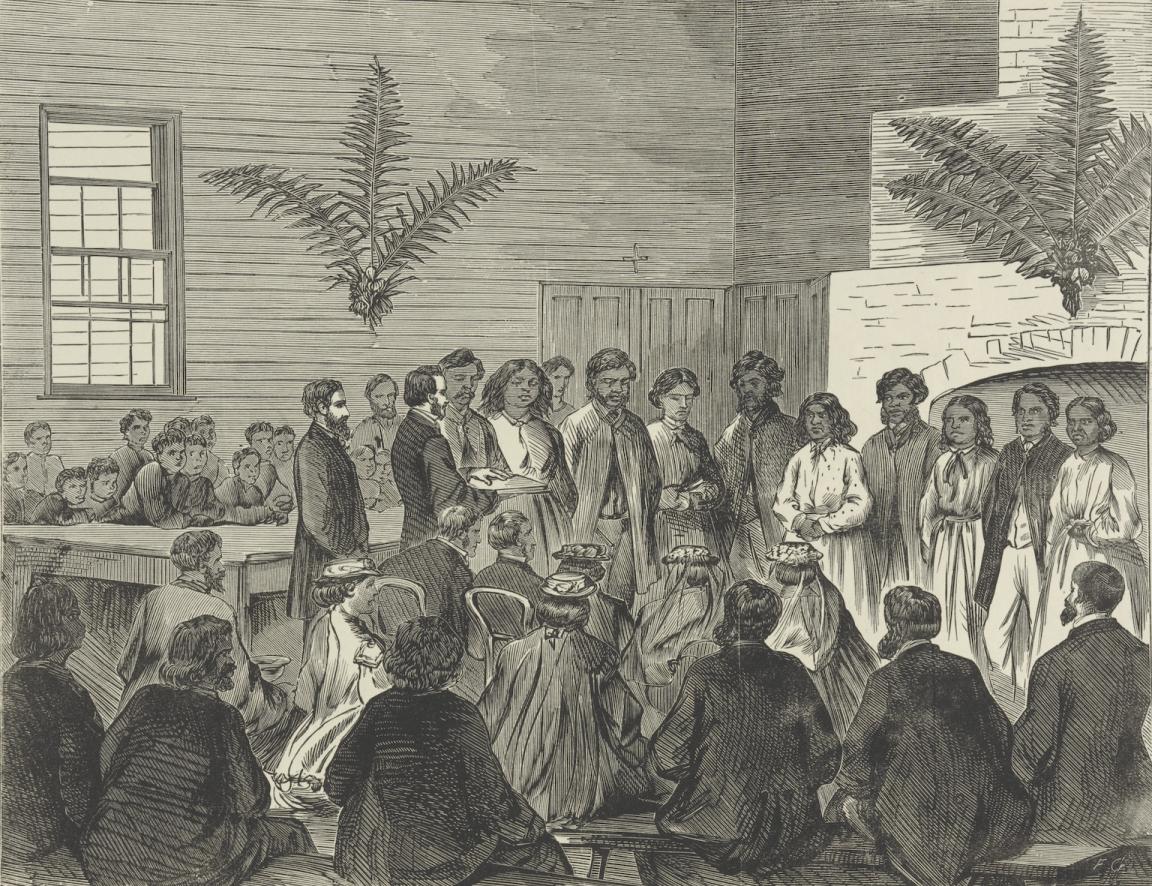
Frederick Grosse, Marriage of Aboriginal natives, Corranderk [i.e. Coranderrk], 1873, nla.gov.au/nla.obj-136144666
Frederick Grosse, Marriage of Aboriginal natives, Corranderk [i.e. Coranderrk], 1873, nla.gov.au/nla.obj-136144666
Protection and welfare boards – ward records
Historically for many Aboriginal and Torres Strait Islanders there may not have been an official record or a church record, but it may have been recorded in a different way.
Protection and welfare boards often recorded the births, deaths and marriages of people who were ‘supervised’ by the board.
Some records from reserves and for those declared ‘wards of the state’ are held by the National Archives of Australia.
Some records are held by state and territory agencies, such as the Aborigines Welfare Board, 1883-1969 ward records held by the Museum of History New South Wales State Archives Collection or the Northern Territory of Australia. Welfare Ordinance 1953-1955 : schedule, Welfare Ordinance, register of wards.
We also hold some reports and guides from ‘protection’ boards and welfare agencies, for example:
- Report of the Board for the Protection of the Aborigines (Victoria, 1896-1910)
- Report from Protector of Aborigines (South Australia, 1899-1912)
- Aborigines mentioned in the minutes of the meetings of the New South Wales Aboriginal Protection Board (APB: 1890-1939) and the Aboriginal Welfare Board (AWB: 1939-1969)
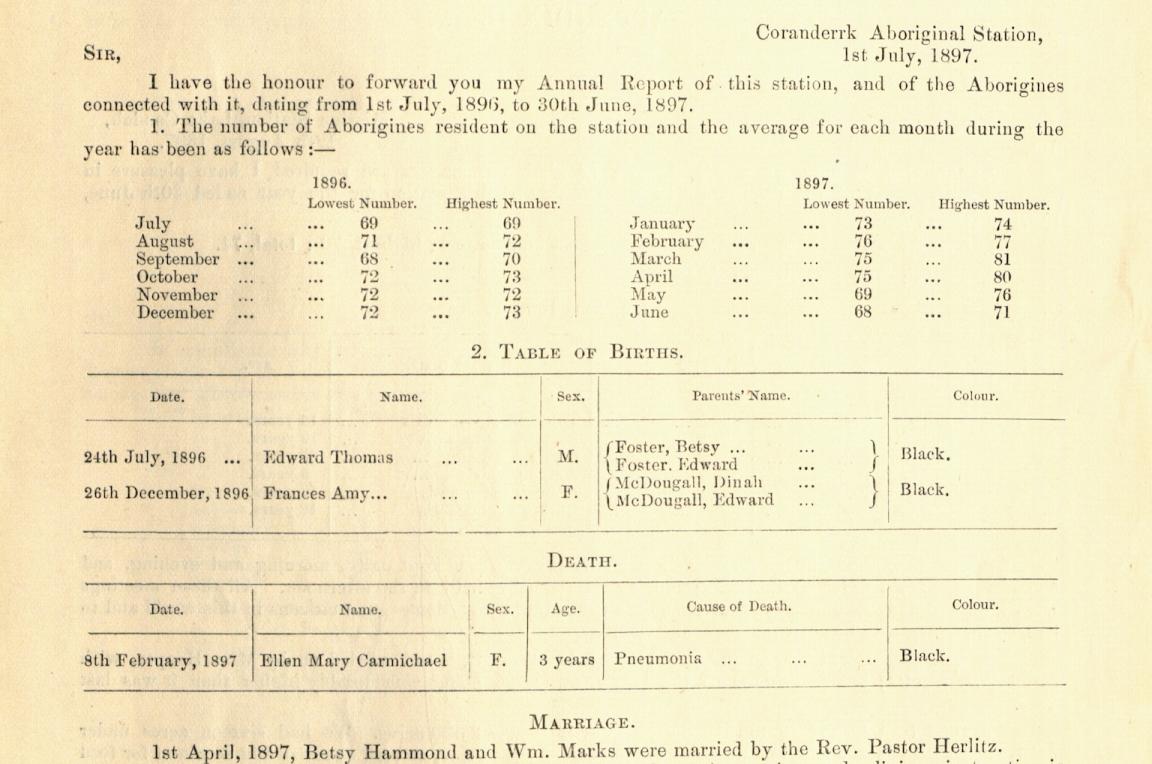
Board for the Protection of the Aborigines & Victoria. Parliament., Report of the Board for the Protection of the Aborigines, 1897, nla.gov.au/nla.obj-54120022
Board for the Protection of the Aborigines & Victoria. Parliament., Report of the Board for the Protection of the Aborigines, 1897, nla.gov.au/nla.obj-54120022
Newspapers and magazines
Old newspaper records are a good place to find birth, death, funeral or marriage notices.
Notices and announcements were also published in the relevant church mission or Aboriginal reserve magazines or newspapers.
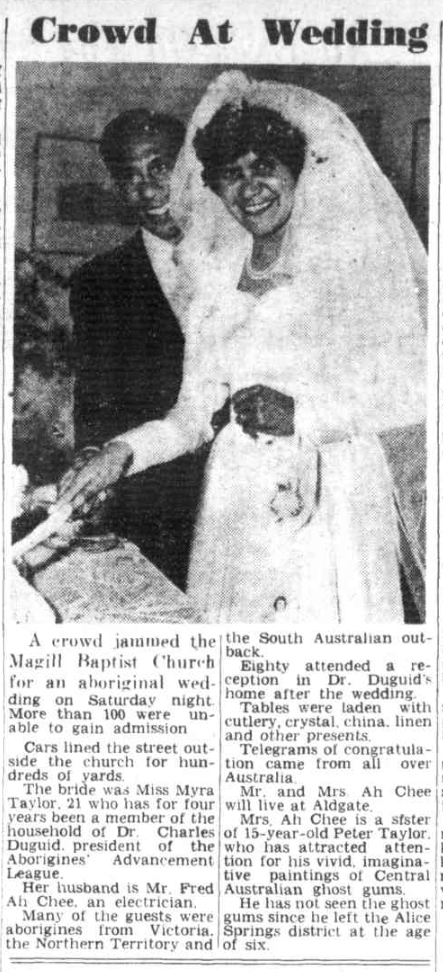
'Crowd At Wedding', Chronicle, 18 February 1954, nla.gov.au/nla.news-article93942740
Trove digitised newspapers
Trove contains Australian digitised newspapers from 1803 to 1954 and some beyond. You can type in the name of the person you are searching for to find out if there were any notices published about them.
Dawn and New Dawn magazines
Dawn and New Dawn were published between 1952-1975 by the New South Wales Aborigines Welfare Board, with the aim of providing interesting information and an exchange of news and views. Dawn and New Dawn also served as a way for people to keep in contact.
Today the magazines are a valuable source of family history information as they include details of births, deaths, marriages and baptisms, as well as hundreds of photographs. They also contain articles about the conditions and activities on reserves, stations, homes and schools throughout New South Wales.
Australian Indigenous Index (formerly InfoKoori)
The State Library of New South Wales has compiled an online index of people mentioned in the Koori Mail newspaper (from 1991-). This index also contains names of people who appear in the Dawn magazine (from 1952-1975). Digitised editions of the Koori Mail, and Dawn magazine can be viewed on the AIATSIS collections online website.
Get help with your research
Our librarians can offer some tips, help you locate resources and point you in the right direction but we are not able to undertake extensive family history research on your behalf.
You can use our Ask a Librarian service to access assistance, ask us specific questions and provide us with information you have already gathered, such as: a family tree, any family papers and photos, or family history notes.
Our Indigenous Engagement team may also be able to offer general guidance and support to First Nations researchers.
